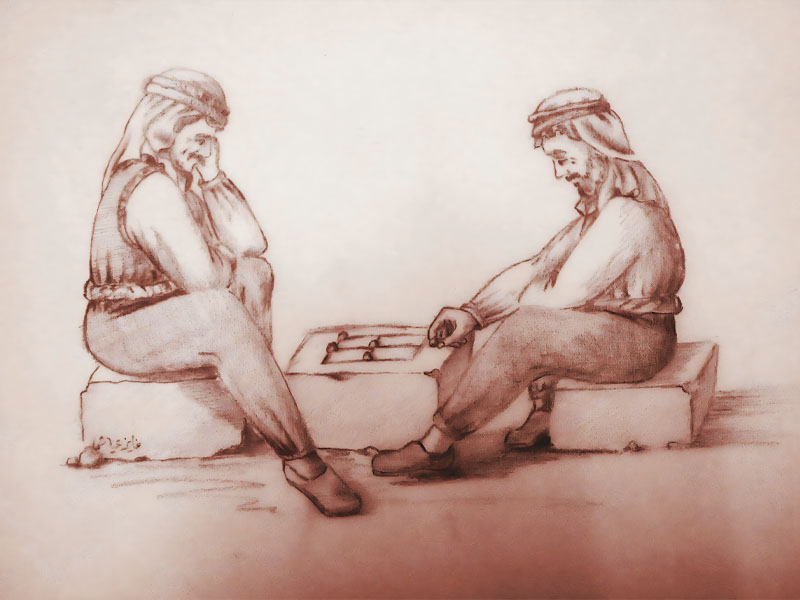Research on “As My Grandfather Played”
Issue 34

By Yasser Mohammed Abu Nuqta
Games emerged and evolved to entertain people and promote solidarity. They involved the use of simple raw materials.
Some games developed by accident, while others were the result of a great deal of effort. In each harsh season or during a long winter’s night, stones were scattered, balls kicked, voices rose and hands clapped!
These are the games my grandfather played. He taught them to my father, who passed them on to me.
However, my grandfather was probably not the first person to play these games! Some of the games date back thousands of years in lands that were home to the greatest human civilisations. Some nations had wrestling and racing, and sports were played in playgrounds and stadiums.
In many of his writings, Professor Taysir Al Faqih mentions the benefits of these games; he told the Folk Culture Journal that games benefit the body, enhance memory, develop skills, promote good social relations, and bridge the gaps created by different social classes’ financial and ethnic differences.
They also promote patience, perseverance and self-control, because players must abide by the rules of each game, respect the rights of others, and avoid cheating.
Folk games play an important role in encouraging movement, rhythm and folk songs, and transmitting customs, traditions and knowledge from generation to generation. In doing so, they help to shape a culture that is rich in meaning, lessons and social activities, which stress the importance of national identity.







































































